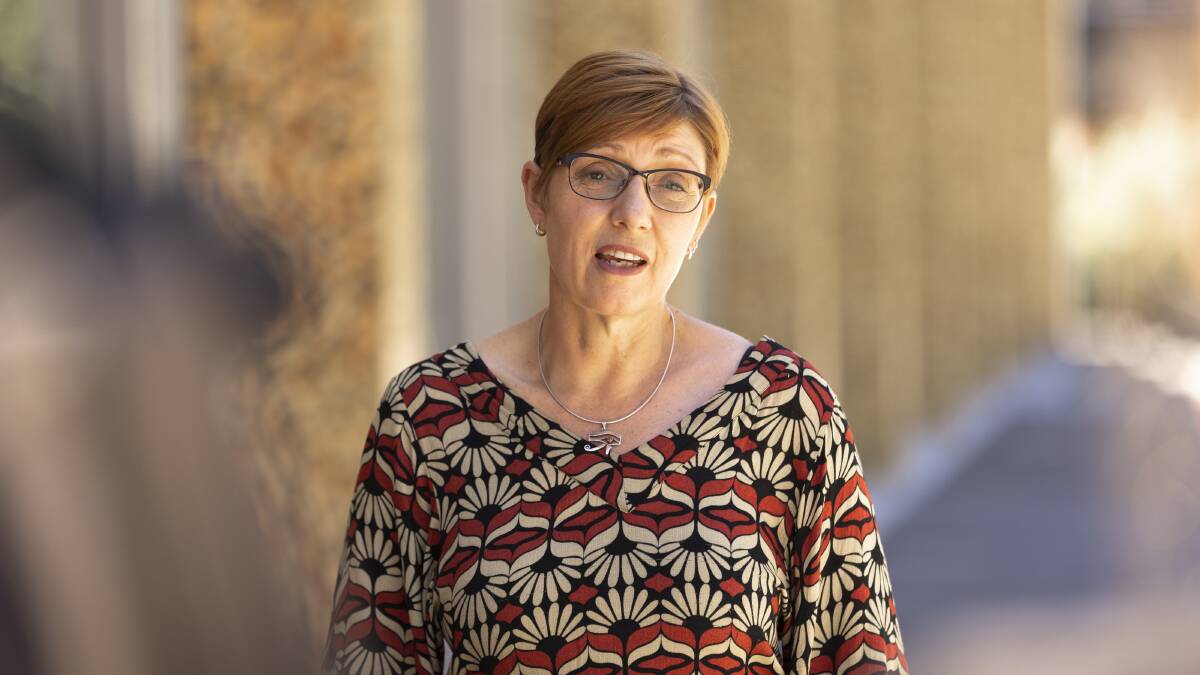
ACT Health Minister Rachel Stephen-Smith has indicated some public health restrictions could be relaxed in a fortnight if the COVID situation in the territory improves.
However, a leading public health expert has cautioned against relaxing rules too early.
A range of public health measures, including density limits in hospitality and retail venues and a ban on dancing could be scrapped by the end of the month. These public health measures, which also include mandatory indoor masks are set to expire at the end of the month.
There was a review this week to see whether the measures were still necessary but chief health officer Kerryn Coleman decided to keep the restrictions in place due to increased movement from a school return and people returning from holidays.
But Ms Stephen-Smith is hopeful some of those restrictions won't be extended when the measures are set to expire on February 25.
"Obviously, we would hope that we would see the situation continue to improve in the ACT and that we're able to remove those restrictions," she said.
"But we'll continue to monitor that over the next couple of weeks."
Public health expert and biostatistician Professor Adrian Esterman said the ACT should avoid loosening restrictions too early.
"Although there's been a decline in case numbers [in the ACT], in the last two weeks that decline is slowing down and flattening out. And if the ACT isn't careful, it's going to plateau at about 500 cases today. Ideally, we'd get down to two or 300 cases a day, because much it's easier for your contact tracers to get it under control," he said.
"If you are going to relax some public health provisions, why don't you keep those that don't impact heavily on business.
"Swiping a QR code or wearing a face mask has very little difference to business."
Dr Esterman said high vaccination rates does not reduce COVID-19 transmission, and some public health measures should be maintained.
"With Omicron, it doesn't matter how high your vaccination rate is [it is] not enough ... especially just two doses, will almost stop no transmission," he said.
"Many European countries have learnt that, after totally removing all public health measures, they've seen cases skyrocket.
"Yes, remove public health measures, but do it slowly and carefully."
NSW has similar public health measures and Premier Dominic Perrottet said the state was on track to scrap those measures on February 27.
There were 500 new COVID-19 cases reported in the ACT in the 24 hours to 8pm on Wednesday. There are 54 people in hospital, including four in intensive care with one requiring ventilation.
The ACT's public health emergency was extended by another 90 days on Thursday. The declaration is set to remain in place until May 13.
"We've been pretty stable at the moment and so we'll continue to monitor that over the next few weeks but what we know from this pandemic is that things can change very quickly," Ms Stephen-Smith said.
"What we know from this pandemic is that things can change very quickly so we also need to be able to respond to the emergence of a new variant or a new wave.
"That's why it's really important that our public health emergency declaration remains in place so that we can respond to the changes that we know can happen quite quickly in this pandemic."
The extension of the public health emergency came as the Legislative Assembly considers an amendment to the Public Health Act which would give ministers and the chief health officer specific COVID-19 powers.
If the new powers come into place before the May 13, the government may choose end the public health emergency.
Under the current public health act, the chief health officer can only make declarations related to quarantine, density limits, mask mandates or vaccine mandates if there is a public health emergency.
But the proposed amendments would allow these directions to be made in relation to COVID-19 once emergency powers have ceased.
"If we were maintaining a fairly stable situation in the way that we are now, the current test, trace, isolate and quarantine requirements and the current public health social measures would be able to be enacted under the bill that we have currently before the Legislative Assembly," Ms Stephen-Smith said.
Ms Stephen-Smith said it was hoped the Public Health Amendment bill could be debated in the Legislative Assembly in March but she said the government did not want to rush the laws through the parliament.
"We know that it's generated a lot of conversation in the community, we know that there's been some feedback through the committee and there may well be amendments that either the government or the opposition would like to propose to that bill," she said.







